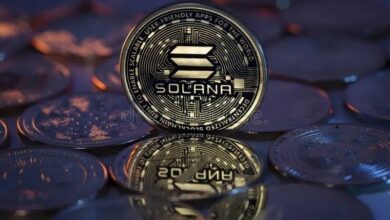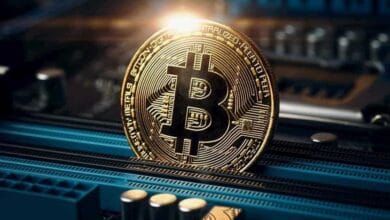
The traditional structure of decision-making in gaming has long been characterized by a top-down approach. Game developers, often centralized entities, held the reins in determining the narrative, mechanics, and overall evolution of virtual worlds. Player influence was typically limited to feedback mechanisms and sporadic updates, creating a dynamic where the gaming experience was largely directed by a select few.
As technology evolves, so does the very fabric of the gaming industry. Enter Decentralized Autonomous Organizations (DAOs), a revolutionary concept gaining prominence in reshaping the power dynamics within virtual realms. DAOs are entities governed by smart contracts and blockchain technology, allowing for decentralized decision-making and ownership.
The integration of Gaming DAOs marks a paradigm shift in how virtual worlds are managed and experienced. These decentralized structures fundamentally alter the traditional power dynamics, placing decision-making authority directly into the hands of the gaming community. In the subsequent exploration, we will dissect the workings of Gaming DAOs, uncovering how they democratize decision-making, influence in-game economies, and redefine the collaboration between developers and players.
The Rise Of DAOs In Organizational Evolution
Decentralized Autonomous Organizations, or DAOs, represent a groundbreaking evolution in organizational structures, bringing the principles of decentralization, transparency, and community governance to the forefront. DAOs are entities run by smart contracts and blockchain technology, eliminating the need for a centralized authority.
The departure from traditional gaming governance structures is stark and transformative. In the traditional model, decisions flowed from a select group of developers or a central authority. Player input, while valued, was often limited to feedback mechanisms and occasional surveys. Gaming DAOs, on the other hand, distribute decision-making power among the community through voting mechanisms, allowing players to influence everything from in-game features to broader development strategies.
Unlike centralized systems, Gaming DAOs leverage blockchain technology to ensure transparency and immutability. Smart contracts, self-executing pieces of code, govern the rules and operations of the DAO, providing a trustless and secure framework. This departure from centralization is not just a shift in governance; it’s a shift in philosophy, placing trust in the collective wisdom of the gaming community.
Successful Implementations Of DAOs
The success of Gaming DAOs is evident in the tangible impact they’ve had on virtual worlds. Notable projects have emerged as pioneers, demonstrating the potential of decentralized decision-making in gaming. Projects like Axie Infinity, where players collectively influence the game’s direction through a DAO, showcase the viability and success of this model. Decentraland allows users to govern aspects of the virtual world’s development through DAOs, granting them ownership and influence over the platform.
These examples highlight the diverse applications of Gaming DAOs, from shaping gameplay mechanics to influencing the virtual economy. As these projects thrive, they serve as beacons for a new era of gaming—one characterized by active community involvement, shared ownership, and a democratized approach to steering the course of virtual realities. In the subsequent sections, we will delve deeper into the mechanisms through which Gaming DAOs democratize decision-making and explore their profound impact on in-game economies and collaborative development.
Inclusive Decision-Making: The Gaming DAO Revolution
Gaming DAOs represent a seismic shift in the power dynamics of virtual worlds, placing decision-making authority directly into the hands of players. This empowerment is not merely symbolic but is woven into the very fabric of game development. Through DAOs, players become active participants in shaping the narrative, mechanics, and overall direction of the virtual realms they inhabit. This democratization of decision-making brings forth a new era where players are not just consumers but co-creators, deeply influencing the gaming experience.
Case Studies Of DAO Impact On Gaming
Examining specific case studies provides a tangible understanding of how Gaming DAOs are actively shaping virtual worlds. Take, for example, a game where the player community votes on the introduction of a new in-game feature or the direction of a narrative arc. The decision-making process becomes a communal effort, fostering a sense of shared ownership and responsibility.
In projects like Decentraland, DAOs are instrumental in determining the development of virtual real estate, infrastructure, and even the rules of the metaverse. The success of such decisions is directly tied to the engagement and participation of the community, showcasing the potency of decentralized governance in game development.
Contrasting the impact of Gaming DAOs with traditional, centralized decision-making models illuminates the transformative nature of this shift. In traditional structures, decisions often emanate from a select group of developers or a central authority. Player feedback is considered, but the power to influence substantial changes remains concentrated.
Gaming DAOs introduce a more inclusive, transparent, and egalitarian approach. Every player with a stake in the DAO has an equal voice, and decisions are made collectively through voting mechanisms. This stands in stark contrast to centralized models where decision-making power is more hierarchical, potentially leading to decisions that may not resonate with the broader player base.
Tokenomics And Voting Mechanisms In Gaming DAOs
Tokens serve as the lifeblood of these decentralized autonomous organizations, representing not just a form of currency but also a vehicle for decision-making and community participation. In Gaming DAOs, tokens are typically distributed to players as a form of ownership and influence, providing a tangible stake in the virtual world’s governance.
Integrating cutting-edge blockchain technology, such as BTC Evex into these Gaming DAOs further enhances the security, transparency, and decentralization of the decision-making process. Bitcoin, as a widely recognized and accepted cryptocurrency, can be employed to strengthen the tokenomics of Gaming DAOs, providing an additional layer of trust and stability to the virtual economies they govern.
These tokens, often unique blockchain-based assets, embody a new paradigm of value within the gaming ecosystem. Players hold not only in-game items but also a direct say in the decisions that shape the very environment in which those items exist. This symbiotic relationship between tokens and decision-making fundamentally transforms the traditional concept of ownership in gaming. The decentralized nature of Gaming DAOs necessitates a fair and transparent mechanism for decision-making, and this is achieved through voting mechanisms. These mechanisms vary but commonly involve token holders casting votes on proposals related to the development, features, or governance of the virtual world.
How Gaming DAOs Contribute To Vibrant In-Game Economies
The integration of Gaming DAOs heralds not only a democratic shift in decision-making but also a profound impact on the very economies that govern virtual worlds. By empowering players with a direct say in the governance of the game, Gaming DAOs play a pivotal role in shaping and sustaining vibrant in-game economies.
The decentralization of decision-making extends to economic policies, influencing factors such as in-game currencies, item values, and reward structures. This decentralized approach fosters a more dynamic and responsive economic ecosystem, where player actions and decisions directly contribute to the virtual world’s financial health.
Sum Up
Gaming DAOs have ushered in a revolutionary era, reshaping the gaming landscape by redefining ownership and empowering players with direct influence over in-game decisions. This transformative shift from a top-down approach to decentralized decision-making allows players to actively co-create the virtual worlds they inhabit. Key takeaways highlight the empowerment of players, the integration of tokens and innovative voting mechanisms, and the contribution of Gaming DAOs to vibrant in-game economies.
Moreover, the evolving collaboration between developers and players fosters a partnership where developers facilitate and players actively contribute to the creative direction of virtual worlds. Looking ahead, the future of decentralized control in virtual worlds promises a more participatory, engaging, and player-centric gaming industry. While challenges persist, the potential for innovation, creativity, and a deeper sense of community is vast, showcasing the transformative power of Gaming DAOs and offering a glimpse into a future where virtual worlds are co-created by a global community of passionate players.



